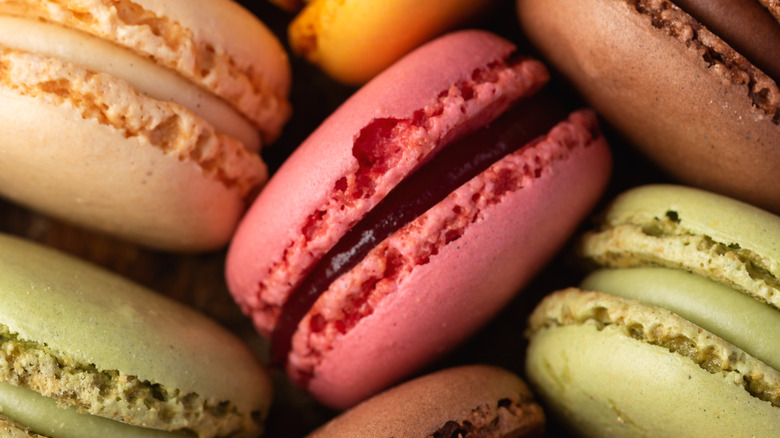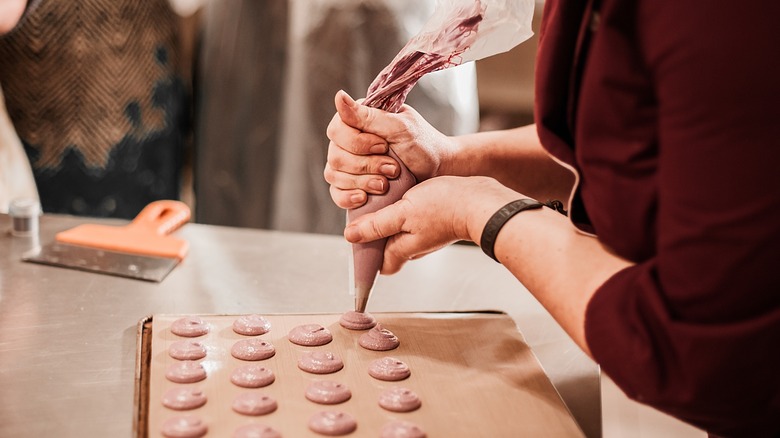Macarons Are Even More Delicate In Humid Environments
Macarons, the button-like cookies sandwiched around vibrant buttercreams or delicate jams, are one of the most enduring and famous symbols of France up there with St. James striped shirts or red berets. But, like berets, macarons are notoriously difficult to pull off and should be attempted with caution. Even when made correctly, they are so delicate that they will begin to go stale in a matter of hours.
These marvelous little treats are made from sweet meringue whipped into stiff peaks and folded into almond flour, then piped into perfect circles (or Valentine's Day hearts) and briefly baked until they form a shiny surface and a ruffled edge called a pied, or foot. There are countless things that could go wrong when attempting to make macarons. You could underwhip or overwhip the meringue. You could forget to sift your almond flour and wind up with a grainy, uneven texture. You could overmix your meringue and almond flour, resulting in flat or wrinkled cookies. You could think you did everything right, only to find that your macarons refuse to develop a pied, no matter how long you bake them.
But sometimes a macaron baking error could have nothing to do with you. In fact, it might depend on where in the world you live.
Macarons hate humidity
If you live in an area with high humidity, it could affect the quality of your macarons. These dainty little cookies can absorb moisture in the air around them, so if it feels like you're walking through pea soup outside, you might want to turn off the oven. Damp macarons will become soggy and chewy after baking, and fail to achieve their ideal airy texture.
If you're not sure whether or not it's too humid to bake macarons, there are a couple of signs that may tip you off. Your batter will be runny, and your cookies may crack in the oven. You might also find that your meringue takes a long time to whip to the correct texture. You can also check the humidity level; 40 to 50% is the ideal range for macarons.
If it is too humid, there are a few things you can do. Turning on the air conditioning, or using a dehumidifier in your kitchen, can help reduce mugginess. But you can also use a meringue stabilizer, such as cream of tartar, salt, lemon juice, or egg white powder. According to Medium, these work by encouraging amino acids to bond, strengthening the meringue, and preventing the proteins in the egg whites from denaturing before they have been sufficiently whipped into shape. Sometimes though, you'll just have to wait for a less humid day.

